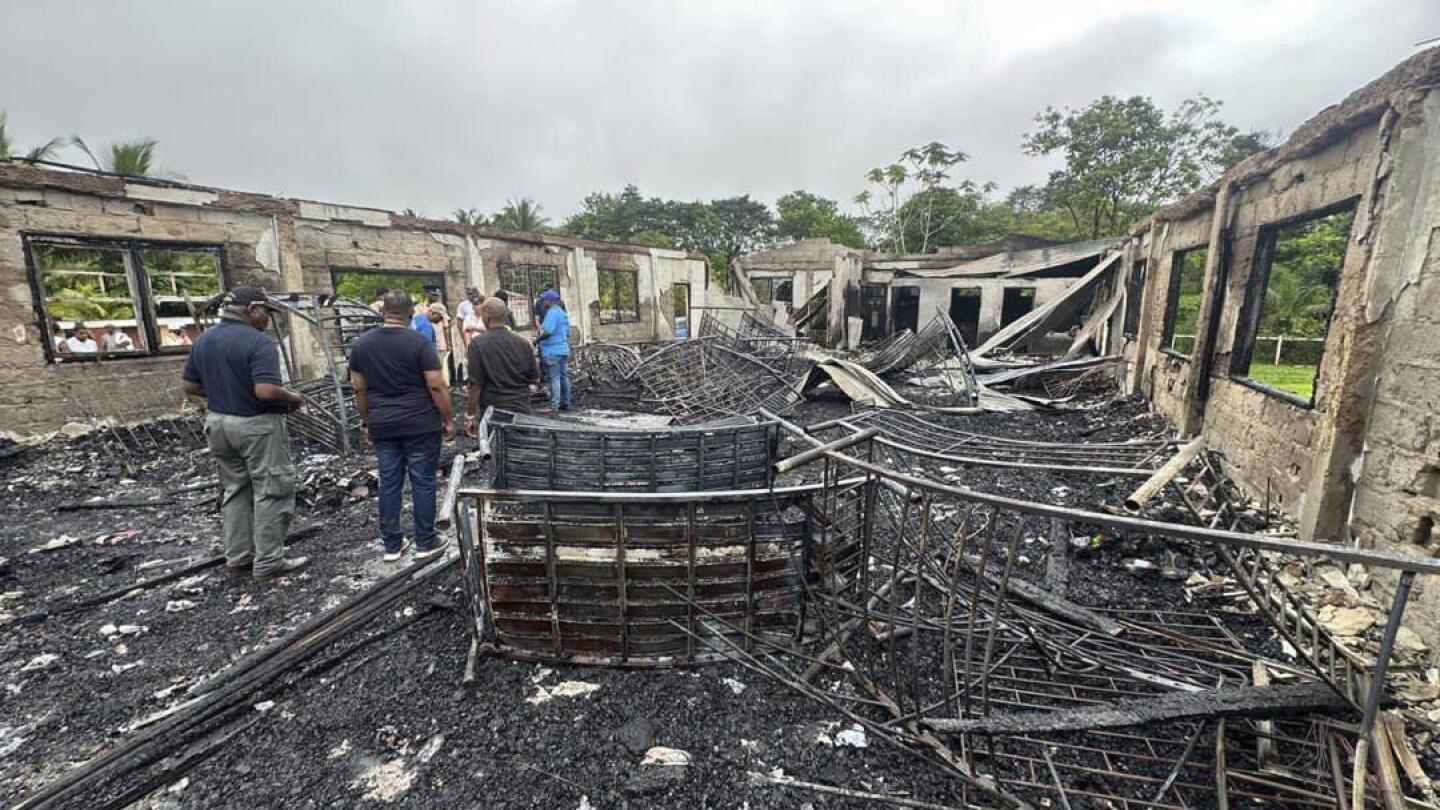GEORGETOWN, Guyana (AP) — The parents of two teenagers who survived a fire that killed 20 people at a high school dormitory for Indigenous girls last year have sued the government, accusing authorities of negligence.
The lawsuit is seeking more than $50,000 for each of the two unidentified 14-year-old girls who were rescued by authorities and residents who braved the fire last May at the Mahdia dormitory near the border with Brazil, according to documents that attorneys shared with reporters late Wednesday.
Investigators have said the fire was deliberately set by a student who was upset that her mobile phone was confiscated.
Attorney Eusi Anderson accused the government of failure to properly equip the school with required fire equipment, to properly train staff in emergency escape and management methods, and to provide marked, well-lit exit routes, fire extinguishers and other emergency equipment.
No date has been set for preliminary hearings.
Anderson also stated in the lawsuit that the girls suffered from severe body burns, smoke inhalation and mental trauma after witnessing the deaths of 19 females and a young boy who died trapped in the iron-grilled building as panicked dorm managers scrambled to locate keys to locked doors.
One of the girls said in her deposition that she still has severe problems sleeping and “difficulty communicating and engaging with peers.”
Anderson argued that the government is fully responsible for the deadly fire since the girls were in its care at all times.
Guyana’s Attorney General Anil Nandlall was named as the key defendant in the case. He said he was not immediately available for comment.
Last July, Guyana’s government said it would pay $25,000 to the parents of each of the 20 people who died in the fire.
The lawsuit comes about a month after a government-appointed commission responsible for investigating the fatal fire blamed authorities in part for operating the dormitory without proper emergency systems in place.
The commission stated in its report that “there was no fire alarm system, no fire detection system, no exit signs and no smoke detection system. There were only three fire extinguishers provided in the buildings and grills were seen on all the windows.”
Authorities have said the grills were necessary to keep girls from escaping and socializing with wealthy gold-and-diamond miners working nearby.
The commission recommended that the government improve safety at dorms including installing extinguishers and sprinkler systems.
School dormitories are widely used in Guyana’s rural interior to serve children from distant mountain and jungle regions who are unable to go home at the end of a school day and return in time the following day.
____
Follow AP’s coverage of Latin America and the Caribbean at https://apnews.com/hub/latin-america

